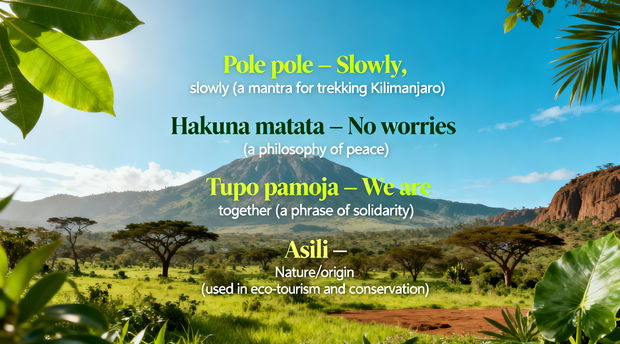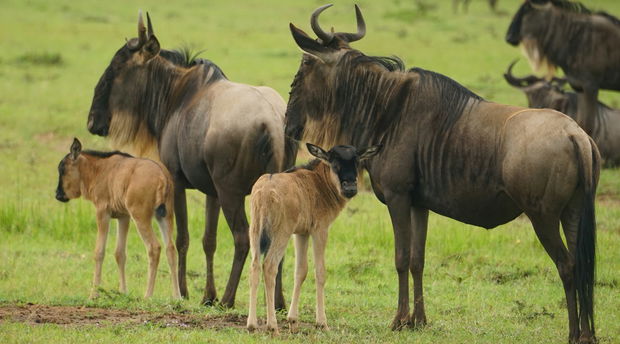Kijani Tours Blog – Explore Tanzania Beyond the Ordinary
Step off the beaten path and uncover Tanzania’s hidden wonders, untold stories, and unforgettable adventures. Explore remote wildlife havens and observe animals in their natural rhythms, while learning how every journey can support conservation efforts and protect fragile ecosystems. Visit vibrant local communities and discover how traditions, crafts, and daily life connect people to the land. With every experience, you leave a lighter footprint, contribute to sustainable tourism, and gain a deeper understanding of the delicate balance between wildlife, nature, and culture—all while creating memories that last long after the safari ends.
Discovering the Living Mosaic of Tanzania’s Biodiversity
Introduction: Journey to the Heart of Tanzania
There is something about Tanzania that refuses to stay behind when you leave. You carry it home without meaning to. The low rumble of hooves across the plains of the Serengeti. The sharp, cold breath of air near the top of Mount Kilimanjaro. The way the light settles over Lake Tanganyika at sunrise, turning the surface into hammered silver. Weeks later, a warm breeze hits your face somewhere else in the world, and you’re suddenly back on the Indian Ocean coast, watching the tide shift.
It is not dramatic in an obvious way. It’s wide, yes. Vast plains, open sky, horizons that don’t seem to end. But it is also close and textured. The crunch of dry earth under your boots. The smell of wood smoke in the evening. Fishing boats nudging against the shoreline. And always, people are at the center of it all. More than 120 tribes, each with its own stories, rhythms, and ways of seeing the world. Daily life moves forward here with or without an audience. You are not watching a performance. You are being invited, briefly, into something real.
The wildlife feels the same. Wildebeest tracing ancient migration paths. Elephants cut quiet silhouettes against the dusk. Lions resting in the shade, completely unbothered by your presence. These patterns are older than borders, older than roads. The land still holds them. You start to understand that this isn’t a place to rush through with a checklist. The more patient you are, the more it gives back.
That is how we approach it at Kijani Tours. Not as a series of highlights, but as an experience you move through slowly. You climb Kilimanjaro with guides who grew up on its lower slopes and know the mountain in their bones. You cross the Serengeti with people who can read tracks and wind like a language. You sit in a village courtyard where tourism income has helped build classrooms and improve water access, and you see exactly where your visit makes a difference. Later, on the beaches of Zanzibar, you rest knowing your stay supports families and local partners, not some distant office.
This isn’t about ticking off landmarks. It is about paying attention. Tanzania asks for that. And if you give it the time, it has a quiet way of shifting something inside you.
Ngorongoro Conservation Area Guide: Wildlife, Crater Tours and Travel Planning
The Ngorongoro Conservation Area rises from the northern Tanzanian highlands as one of Africa’s most layered landscapes. Here, volcanic geology shaped a vast caldera, wildlife adapted to enclosed grasslands and permanent springs, Maasai pastoralists continue centuries-old grazing traditions, and some of the earliest evidence of human evolution lies preserved in nearby sediment. Few destinations integrate ecology, anthropology, and living culture with such clarity.
When you stand on the rim of the Ngorongoro Crater at sunrise, you do not simply look down at wildlife. You observe a functioning ecological system. Lions patrol territories defined by prey density. Elephants navigate forest corridors shaped by groundwater flow. Flamingos respond to alkaline lake chemistry influenced by seasonal rainfall. Each sighting reflects a deeper process.
This guide provides a comprehensive framework for understanding and planning a visit to Ngorongoro in 2026 and beyond. It integrates wildlife behavior, highland trekking routes, Olduvai Gorge archaeology, Laetoli footprints, Gol Mountain vulture ecology, climate change implications, and practical logistics. The goal is not only to inform but to equip you with insight that transforms a safari into an informed, responsible, and strategically planned journey.
Eco‑Hiking Moshi and the Eastern Arc: Responsible Trekking Guide 2026
The trail doesn't just take you up a mountain; it takes you into a secret that Northern Tanzania has been whispering for millennia. Beyond the postcard-perfect summit of Kilimanjaro lies a world where the air smells of wild jasmine and ancient moss, where stone-walled villages in the Pare Mountains still follow the rhythms of the moon, and where the "sky islands" of the Usambaras hide creatures found nowhere else on Earth. But here is the truth we’ve learned at Kijani Tours: these landscapes are as fragile as they are fierce.
Are you ready to discover what it means to hike with intention? Imagine standing on a sheer cliff at Irente Viewpoint as the world drops away, or walking through a Chagga forest garden where every leaf has a story and every footstep supports a family. In 2026, we’re moving beyond simple trekking and into the heart of stewardship. From the hidden waterfalls of Same to the glacial silence of Uhuru Peak, we invite you to step into a journey that challenges your body, heals your mind, and protects the very ground beneath your boots. The mountain is calling—will you answer as a visitor, or as its guardian?
Summit to Savannah: The Ultimate Kilimanjaro and Safari Combo
Before dawn on Mount Kilimanjaro, every step toward Uhuru Peak is a test of will against thin alpine air. You move through five distinct ecosystems—rainforest, moorland, alpine desert, and arctic summit—until sunrise spills over Africa’s highest point. The climb demands resilience, but it offers something rare in return: clarity, strength, and a deep connection to the land.
Days later, the stillness of the summit gives way to the sweeping plains of the Serengeti, where lions stir and the Great Migration pulses through ancient grasslands. From the wildlife-rich floor of the Ngorongoro Crater to the elephant-dotted baobab landscapes of Tarangire National Park, safari becomes both reward and revelation—a chance to witness nature’s intricate balance up close.
With Kijani Tours, this multi-adventure journey is crafted with safety, sustainability, and community at its heart. Expert-guided climbs, ethical wildlife experiences, and meaningful cultural connections with local communities create more than a trip—they create perspective. First, you conquer the mountain. Then, the wild reshapes you.
Kilimanjaro Climb for Senior Climbers: The Definitive Guide to a Safe, Soulful, and Slow Ascent
A silver mist drifts through Lemosho’s mahogany glades, carrying the scent of damp earth and ferns. Your trekking poles press into the soft trail, each step intentional, each breath a conversation with the mountain. Unlike the rush of younger climbers chasing Kilimanjaro’s summit, this is a slow-paced climb designed for senior adventurers.
At Kijani Tours, we believe a senior-friendly ascent is about seeing, feeling, and connecting. Our guides move with care, watching your health and every rhythm of the mountain. Beyond the peak, this journey immerses you in Tanzania’s wild heart, supports local communities, and honors glaciers that have endured centuries.
As sunlight lights the Shira Plateau, you realize: your years are your strength. The summit favors patience, curiosity, and steady purpose. Welcome to the “Slow Adventure.” The mountain is calling, and with Kijani Tours, you are ready to answer.
The Chagga people of Kilimanjaro: Guardians of Land, Culture, and Mountain Life
The morning mist on the lower slopes of Mount Kilimanjaro doesn’t just obscure the view; it holds a secret. As you step into the cool, shaded world of a Kihamba garden, the temperature drops, and the air fills with the scent of damp moss, bruised banana leaves, and the spicy, medicinal whisper of the Ikiingiyi bush. Here, the mountain doesn't feel like a physical challenge to be overcome, but like a living, breathing teacher.
This landscape is a masterclass in harmony that has endured for centuries. Every hand-dug Mfongo canal and every iron tool forged by the village blacksmith tells a story of a people who mastered the art of "Vertical Living" long before the modern world began searching for the meaning of sustainability. Historically, this soil has witnessed a profound evolution—from the absolute authority of the Mangi chiefs to the arrival of the "Iron Snake" railway, which transformed a local harvest into a global heartbeat.
Why does this matter? Because in a world of fast-paced change, the Chagga community offers a rare blueprint for resilience. It is a place where a single Isale leaf still carries the weight of a legal seal, and where the "cooperative spirit" isn't just a business model, but a survival strategy that reclaimed a Nation's destiny.
At Kijani Tours, we believe that the most meaningful journeys aren’t measured in altitude, but in the depth of our connection to the land and its guardians. We invite you to set aside the summit maps for a moment and step into the green cathedral of the mountain. From the first coffee seeds planted in the shadow of Kilema Mission to the ancestral wisdom that still guides the flow of the water, let us explore the enduring legacy of the people who call the "Roof of Africa" home.
Solo vs. Group Kilimanjaro Climbs: The Ultimate Guide to Finding Your Perfect Journey
Climbing Mount Kilimanjaro is a life-changing adventure, whether you choose to go solo or join a group. Solo climbs let you set your own pace, connect with your emotions, and enjoy quiet time for reflection. Guided group climbs offer motivation, friendship, and more affordable options. Both types of climbs include expert guides, porters, and full safety support, making your ascent safe and memorable. With popular routes like Lemosho, Machame, Rongai, and Northern Circuit, Kijani Tours ensures every climber enjoys stunning views, responsible trekking practices, and a journey that supports local communities. Whether you want solitude or a shared experience, your Kilimanjaro climb with Kijani Tours promises an unforgettable summit.
The Unifying Power of the Swahili Language in Tanzania
For the eco-conscious traveler, a trip to Tanzania is a quest for authentic connection. This article reveals that the most powerful tool for achieving this isn't found in your backpack, but in your voice: the Swahili language.
Moving beyond basic phrasebooks, we explore how Swahili is your key to responsible and transformative travel. It's a language born of trade and cultural exchange, making it inherently welcoming. We uncover how using Swahili fosters genuine respect, transforms you from a spectator into a participant, and unlocks a deeper understanding of local communities and conservation efforts.
Learn the essential phrases that build bridges, discover the cultural concepts like "pole pole" (slowly) and "ujamaa" (community) that align with an eco-mindset, and understand why speaking Swahili is the ultimate practice of sustainable travel. This is your guide to not just seeing Tanzania, but feeling it, connecting with its people, and leaving with a sense of true belonging.
Travel Deeper: How Cultural Respect Creates Truly Sustainable Tourism
Travel Deeper: How Cultural Respect Creates Truly Sustainable Tourism
1) True sustainability goes beyond eco‑habits—it begins with a respectful mindset toward local cultures.
2) Cultural respect strengthens the three pillars of tourism: environmental protection, economic resilience, and socio‑cultural preservation.
3) Empowering communities as guardians, artisans, and storytellers ensures conservation and dignified livelihoods.
4) Travel becomes legacy‑building when it shifts from extraction to authentic human connection.
Wildebeest Birth Season: A Drama of Life and Survival
This blog explores the breathtaking drama of the wildebeest calving season in Tanzania’s southern Serengeti, where over 500,000 calves are born within a few short weeks between January and March. It highlights the synchronized birthing strategy known as predator satiation, which helps ensure survival by overwhelming predators, such as lions, cheetahs, and hyenas, with sheer numbers. The piece captures the emotional intensity of this natural phenomenon—where life and death unfold in real time—and positions it as a must-see experience for safari travelers seeking raw, unforgettable encounters with nature’s rhythms.



Share This Page